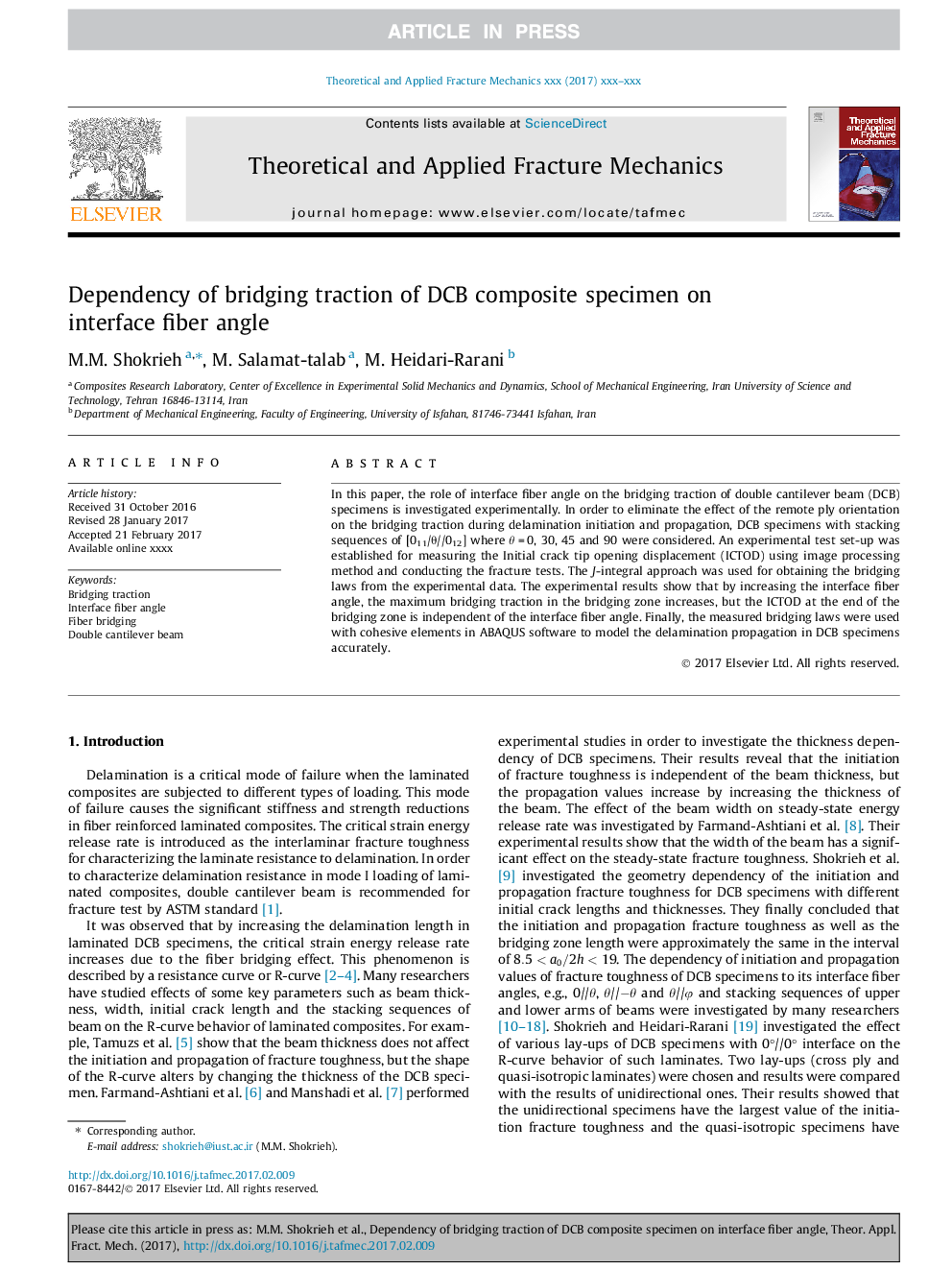| Article ID | Journal | Published Year | Pages | File Type |
|---|---|---|---|---|
| 5019730 | Theoretical and Applied Fracture Mechanics | 2017 | 11 Pages |
Abstract
In this paper, the role of interface fiber angle on the bridging traction of double cantilever beam (DCB) specimens is investigated experimentally. In order to eliminate the effect of the remote ply orientation on the bridging traction during delamination initiation and propagation, DCB specimens with stacking sequences of [011/θ//012] where θ = 0, 30, 45 and 90 were considered. An experimental test set-up was established for measuring the Initial crack tip opening displacement (ICTOD) using image processing method and conducting the fracture tests. The J-integral approach was used for obtaining the bridging laws from the experimental data. The experimental results show that by increasing the interface fiber angle, the maximum bridging traction in the bridging zone increases, but the ICTOD at the end of the bridging zone is independent of the interface fiber angle. Finally, the measured bridging laws were used with cohesive elements in ABAQUS software to model the delamination propagation in DCB specimens accurately.
Keywords
Related Topics
Physical Sciences and Engineering
Engineering
Mechanical Engineering
Authors
M.M. Shokrieh, M. Salamat-talab, M. Heidari-Rarani,
